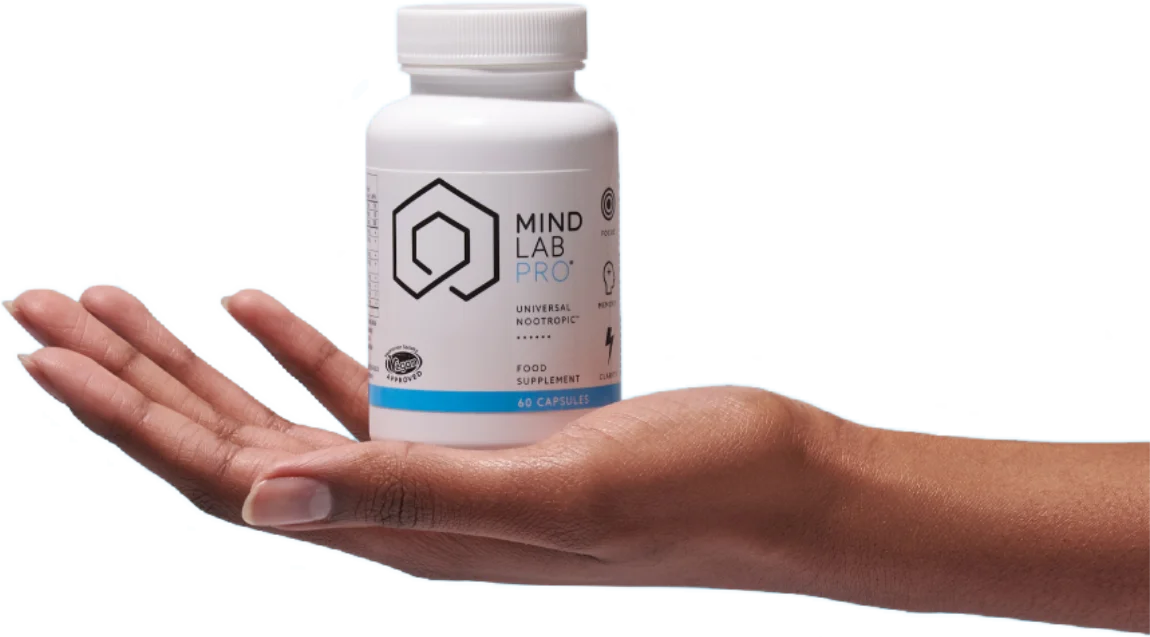In the quest for energy, alertness and mental clarity, two helpers come to the forefront these days: traditional coffee and emerging nootropics.
While coffee, with its rich history and revered status as a universal pick-me-up, has long been the go-to for a quick mental boost, nootropics - a class of substances that boost brain function - are rapidly gaining popularity as an alternative for alertness and mind-body energy.
This article delves into the heart of the nootropics vs. coffee debate, comparing the time-honored effects of a morning brew with the innovative and targeted approach of today's top brain-boosters.
We'll explore their mechanisms of action, cognitive benefits, potential side effects, and situational suitability, offering insights into which might be the best fit for your cognitive enhancement needs. Let's get to it!
Quick direction: This guide compares coffee vs nootropics and shows when to use each (or combine them).
- Wondering whether caffeine “counts” as a nootropic? See: Is caffeine a nootropic?
- Shopping for a caffeine supplement instead of coffee? See: Best caffeine pills
- Want the smoothest stimulation combo? See: Best caffeine + L-theanine stack
Quick Summary
When used correctly, both coffee (caffeine, specifically) and nootropics can enhance performance.
Coffee is an enjoyable ritual that delivers time-tested energy and alertness benefits. A good nootropic supplement, on the other hand, can provide whole-brain enhancement that outperforms caffeine.
Rather than coffee vs. nootropics, optimal performance benefits may be achieved by combining coffee with nootropics.
This approach delivers the best of both worlds: Caffeine in a more precise format, plus nootropics to boost caffeine and enhance cognition in many additional ways.
If you're interested in supplements for nootropic brain enhancement and caffeinated energy, here are some high-quality options to consider:
Best Nootropic for Combining with Coffee - Mind Lab Pro®
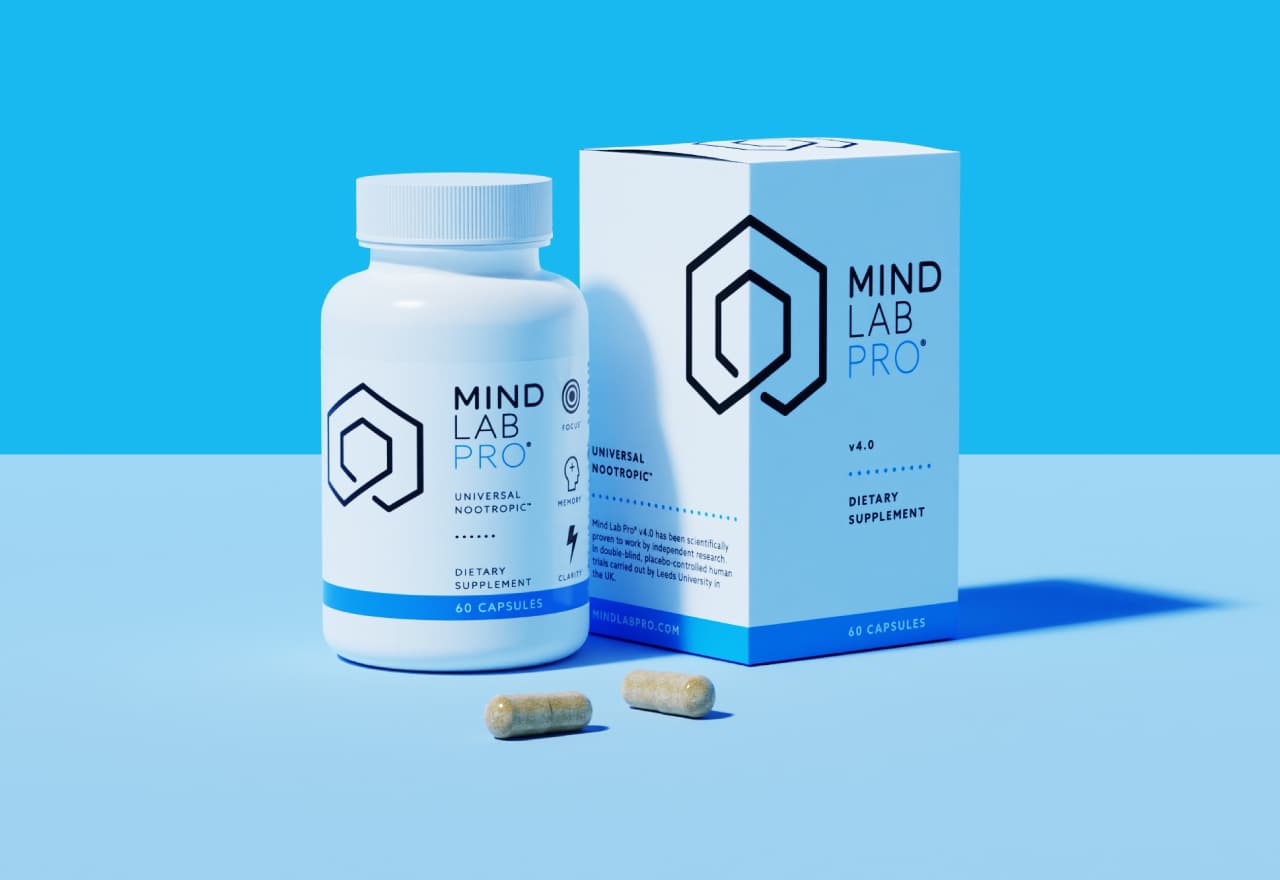
Mind Lab Pro (MLP®) is today's best nootropic supplement. It supplies 11 research-backed nootropics in each vegan capsule, including 100 mg of caffeine-boosting amino acid L-Theanine. MLP® is caffeine-free -- but it goes great with coffee because it helps caffeine work better while providing its own dynamic cognitive health benefits. - Get the Best Deal on MLP® Now -
Best Caffeine Pill for Replacing Coffee - Performance Lab® Caffeine 2
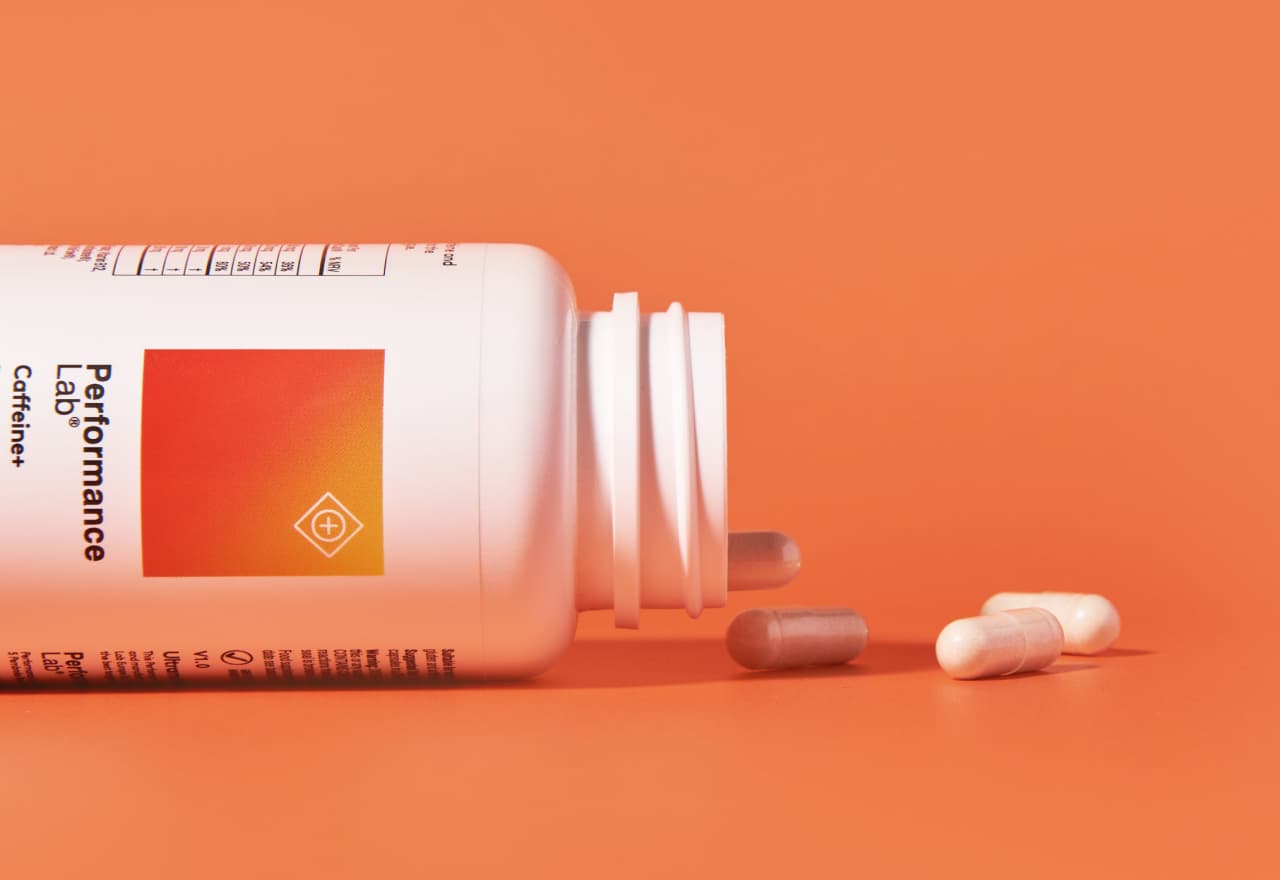
Caffeine 2 is a caffeine pill is enhanced with nootropics -- L-Theanine, L-Tyrosine and B-vitamins -- to deliver calmer, cleaner mental energy than coffee or energy drinks. At 50 mg of caffeine per capsule, Caffeine 2 is also more precise than other options, giving you greater control over your level of stimulation. - Get the best deal on Caffeine 2 Now -
Additional nootropics that can pair well with coffee or even replace it:
- Performance Lab® Energy: Caffeine-free energizer works without stimulation, instead boosting cells' powerplant mitochondria. Great for clean vitality; also complements coffee for 2X energy. Uncover the Energy-Enhancing Benefits
- MCT Energy Oil: Nootropic medium-chain triglycerides (MCT) in oil form can be used like creamer in coffee, imparting silky-smooth texture while delivering energizing brain fuel. Discover How It Boosts Brainpower
- Pre Lab Pro®: Nootropic pre-workout with moderate-dose caffeine, nootropics and sports nutrients for focus, energy, intensity, motivation and more. See the Science Behind This Formula
We go into more detail on each of these nootropic supplements further down the page.
*What about nootropic infused coffee? Also called smart coffee, this new trend adds brain-boosting nootropics to ground regular coffee. When it is brewed, you end up with some brain-boosting nutrition in your nootropic coffee mug. How much, however, is harder to specify.
Coffee vs. Nootropics: What They Are and How They Work
If you're researching coffee vs. nootropics, you may be interested in how they work and what performance-enhancing effects they provide. Let's take a quick look.
What is coffee?

Coffee is a brewed beverage made from roasted coffee beans, the seeds of berries from certain Coffea species. Coffee is an incredibly popular drink. Most healthy adults in the USA drink coffee: one report showed that 75% of adults consume it, equating to over 150 million people.(1)
How does coffee work? Caffeine works primarily by blocking adenosine receptors in nerve cells. Adenosine is a neurotransmitter that promotes sleep and relaxation.
By blocking adenosine, caffeine stimulates the central nervous system. This can lead to improved alertness, concentration, mood, reaction time and more.
Coffee has additional natural compounds that help neurotransmitter production (dopamine, norepinephrine, adrenaline) for focus, concentration and energy.
What are nootropics?

Also known as smart drugs or cognitive enhancers, nootropics are substances that enhance cognitive function. They may help boost focus, attention, memory, creativity, motivation and other aspects of mental performance in healthy individuals. Learn more about what nootropics are.
How do nootropics work? Here is the first big difference between coffee and nootropics. Coffee is one substance with a couple of main mechanisms of action.
Nootropics, on the other hand, include nearly 100 different substances that perform dozens of brain-boosting mechanisms of action.
To name a few, nootropics can boost blood flow to the brain, balance brain chemicals, energize brain cells, modulate brain waves and more. Learn more about how nootropics work.
Is coffee a nootropic?
Coffee can enhance cognition, mainly because of caffeine’s stimulant effects (alertness, reaction time, and focus). However, whether caffeine “qualifies” as a true nootropic depends on how strictly you define the term.
For example, one study shows as a nootropic caffeine boosts arousal, mood, concentration and learning -- all of which are hallmark benefits associated with nootropic compounds.(2)
If you want the definition-based answer and the nootropic criteria, see: Is caffeine a nootropic?
In this article, we’ll stay focused on the practical question: coffee vs nootropics—what works best for your goals, and when combining them makes sense.
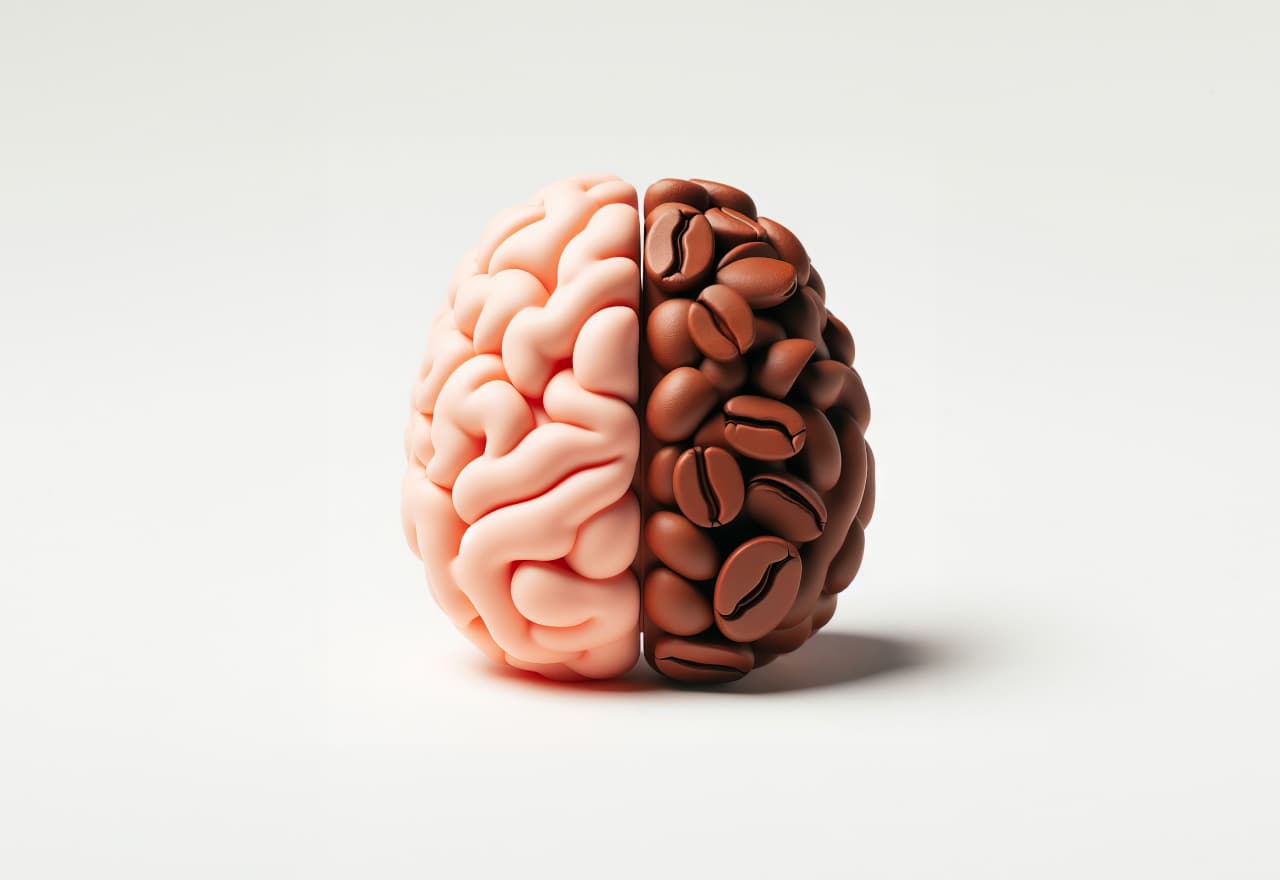
Caffeine consumption goes beyond brewed coffee. It is also found in energy drinks and other caffeinated beverages (yerba mate, instant coffee, green tea, drinks made from kola nuts), dark chocolate and caffeine pills. It's no wonder why students choose the most popular source of caffeine for studying!
Coffee remains the most popular way to get caffeine.
Pros and Cons of Coffee Consumption
While the effects of caffeine and cognition are largely positive, there are some considerations when choosing caffeine as a nootropic.
Pros of Coffee
- Reliable benefits: Used for centuries to boost mental energy and alertness; also delivers a range of brain-boosting nootropic effects and athletic performance benefits from its caffeine.
- Neuroprotective: Some evidence suggest that drinking coffee may hold some promise for fighting cognitive decline and supporting long range-brain health.
- Accessible, affordable and enjoyable: You can pretty much find a hot cup of coffee anytime, anywhere. This is great for coffee lovers who enjoy the taste and ritual of consumption.
Cons of Coffee
- Crashes: Too much coffee and caffeine intake can lead to energy spikes and crashes that are counterproductive, potentially culminating in adrenal exhaustion.
- Calories: While a cup of black coffee only contains about 5 calories, adding sugar, milk and other creamers can add up fast, potentially bringing the total to 50-100 calories per coffee. Exotic lattes and macchiatos may take the calorie count even higher, into the hundreds.
- Side effects: Consuming coffee is associated with a wide range of side effects, including jitters, irritability, sleep problems, headaches, indigestion, blood pressure issues, dependence and addiction. In extreme cases, you can even get withdrawal symptoms when you stop drinking it.
- Toxins: Coffee beans may potentially contain various toxins, pesticides and molds, including mycotoxins produced by molds and the toxin acrylamide that is formed during coffee bean roasting.
- Nutrient depletion: Coffee is a diuretic that has been shown to flush some nutrients -- especially B-vitamins -- out of your system. (That's why our top-rated caffeine pill supplies extra B-vitamins).
Pros and Cons of Nootropics
Pros of Nootropics
- Versatile: Nootropics offer a greater diversity of research-backed cognitive performance benefits than caffeine alone. They boost focus, learning, attention, concentration, relaxation, etc.
- Convenient: Unlike coffee, you can carry nootropics in your pocket. It's quicker and easier to pop a few nootropic capsules than to drink a cup of coffee.
- Healthy: Some nootropics are highly regarded for their ability to support brain development and nourish health in both the brain and nervous system, naturally
Cons of Nootropics
- Complexity: There are a lot of nootropic nutrients to consider (see our full list of nootropics) and it can be complicated figuring out which ones are best for you.
- Legality: Some nootropic compounds are strictly regulated or illegal in some countries.
- Expense: Some nootropics can be expensive, especially if you are making your own homemade nootropic stack that includes a lot of different nutrients.
What to take: Nootropics or Coffee?
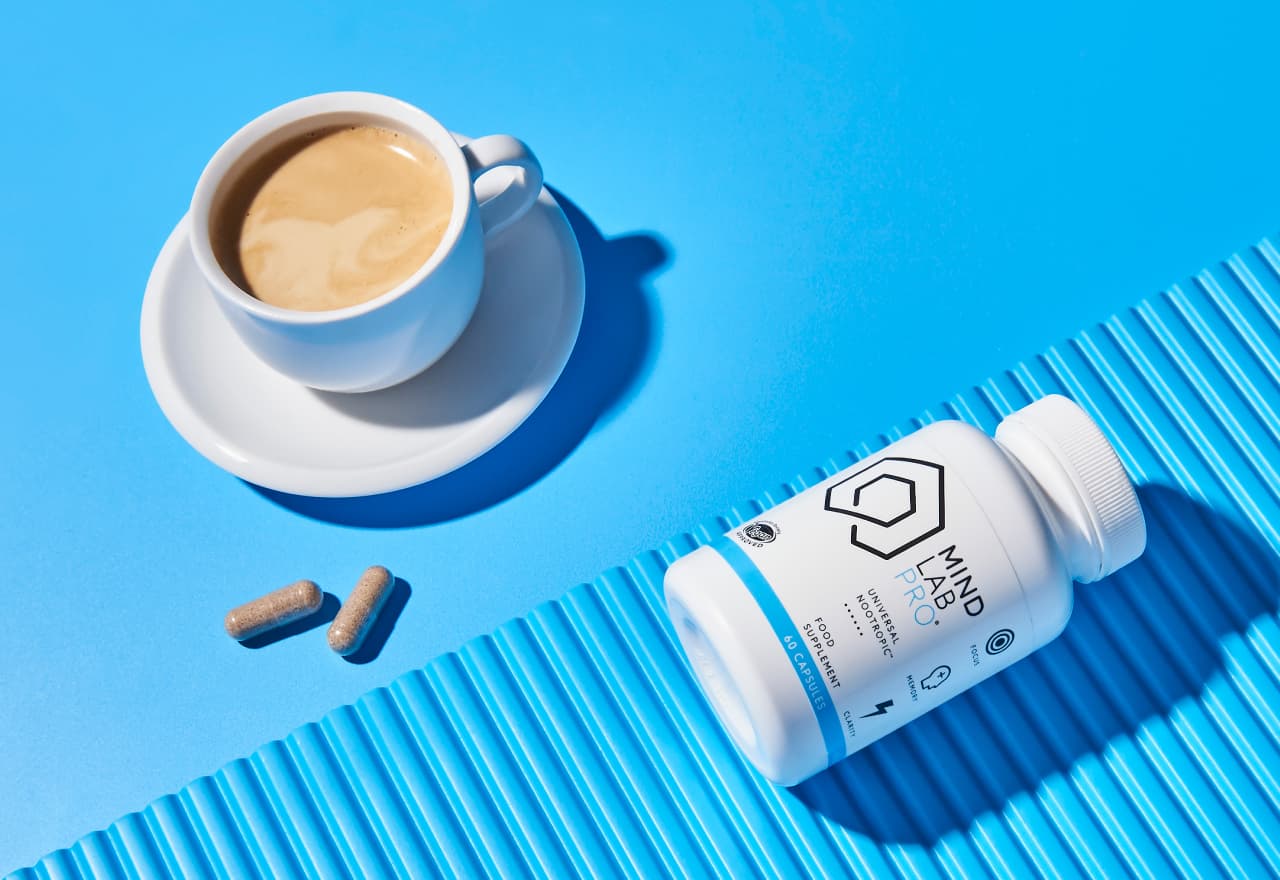
So what's the best approach to nootropics vs. coffee? You can take one or the other, you can take both, or everything in between. Each has its own advantages.
Correct usage unlocks the best coffee and/or nootropic benefits for your unique needs. Some options:
Consume Just Coffee - No Nootropics.
That cup of morning coffee is great for brainpower, but taking too much can lead to counterproductive side effects. Precise caffeine dosing is the secret to getting its best benefits across the board.
Researchers have suggested that caffeine is most effective in the low-to-moderate dosage range.(3) This amounts to 3–6 mg of caffeine per kilogram of bodyweight (about 1.4–2.7 mg per pound).
Take Just a Nootropic - No Coffee.
Some people take nootropics as stim-free brain boosters. This is an especially effective strategy for those with sensitivity to stimulants like caffeine.
In other words, some nootropic compounds can produce caffeine-like effects. If you are stim-sensitive, natural nootropics may boost alertness and mental energy without caffeine-related side effects and crashes.
Combine Coffee With Nootropic Ingredients
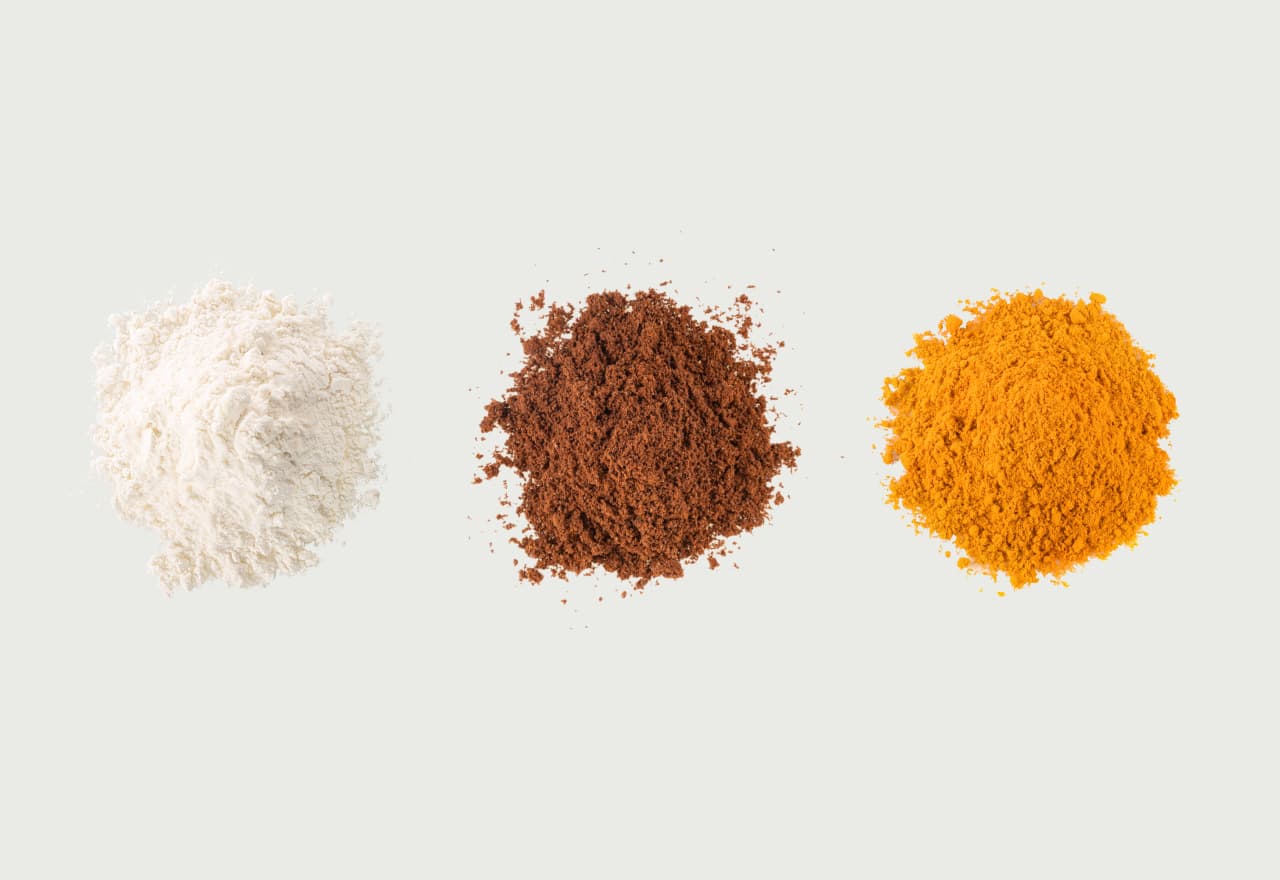
Some nootropics simply go great with caffeine. Nootropics can help replace what caffeine depletes, enhance caffeine's beneficial effects, provide complementary support for alertness, mental energy, mood, motivation and more.
Some of the best nootropics to take with coffee include:
L-Theanine: Across multiple human clinical studies, researchers suggest that caffeine and L-theanine may reduce caffeine jitters and side effects while producing a range of cognitive benefits.(4) The combination may boost alertness, reduce tiredness, improve accuracy and enhance attention. Amino acid L-Theanine also boosts Alpha brainwave activity in the brain, promoting "relaxed alertness."(5) More on L-Theanine
L-Tyrosine: Coffee stimulation is linked to stress, multitasking, overwork and burnout -- all of which drain brain chemicals. L-Tyrosine helps restore brain chemicals depleted by an overcaffeinated, hectic lifestyle.(6) Stacking caffeine with the preferred N-Acetyl L-Tyrosine form helps restore the brain while unleashing multiple performance-driven cognitive functions. More on N-Acetyl L-Tyrosine (NALT)
Citicoline: Citicoline has been shown to energize the brain on a cellular level. One human research study suggests it may boost brain energy metabolism by up to 13.6%.(7) Citicoline instead supports healthy mitochondrial function in brain cells, which helps cognitive health and mental energy. Citicoline and caffeine work well together. Citicoline breaks down into choline, which when combined with caffeine, may significantly raise the brain chemical acetylcholine. If you're considering choline vs. caffeine, you may be better off simply taking both. More on Citicoline
Plant Adaptogens: Rhodiola Rosea and Bacopa Monnieri. Caffeine can stress the body and mind. Rhodiola Rosea and Bacopa Monnieri help by blunting the release of stress hormone cortisol and strengthening resistance to physical and psychological stresses.(8) In addition, they are natural mind-body energizers in their own right, with each offering many additional cognitive function benefits. Rhodiola in particular is considered a legal performance enhancer.
B Vitamins: Coffee is a diuretic that flushes out B-vitamins (and other nutrients).(9) Stacking B vitamins with coffee may help replenish the vitamins lost to caffeine's diuretic effect. If you're consuming coffee, consider increasing intake of B-vitamins. Three of the most important for certain brain functions and overall brain health are Vitamin B6, Vitamin B9 and Vitamin B12.
MCT Oil: MCT oil is a type of fat derived from coconut or palm kernel oil. It's easily absorbed and metabolized by the body, providing a quick source of energy.(10) When MCT oil is added to coffee, it's believed to create a synergistic effect. The caffeine in coffee provides immediate mental stimulation, while the MCT oil offers a sustained energy source without the sugar crash. See: MCT Energy Oil
Combine Coffee with Nootropic Supplements
Instead of coffee or nootropics, your best bet for peak performance is coffee with nootropics. The trick is to pair your coffee with high-quality nootropic stacks and dietary supplements that boost the brain while helping caffeine to work even better.
Some top nootropic supplements to take with caffeine include:
Mind Lab Pro®: Leading Nootropic for Synergy with Coffee
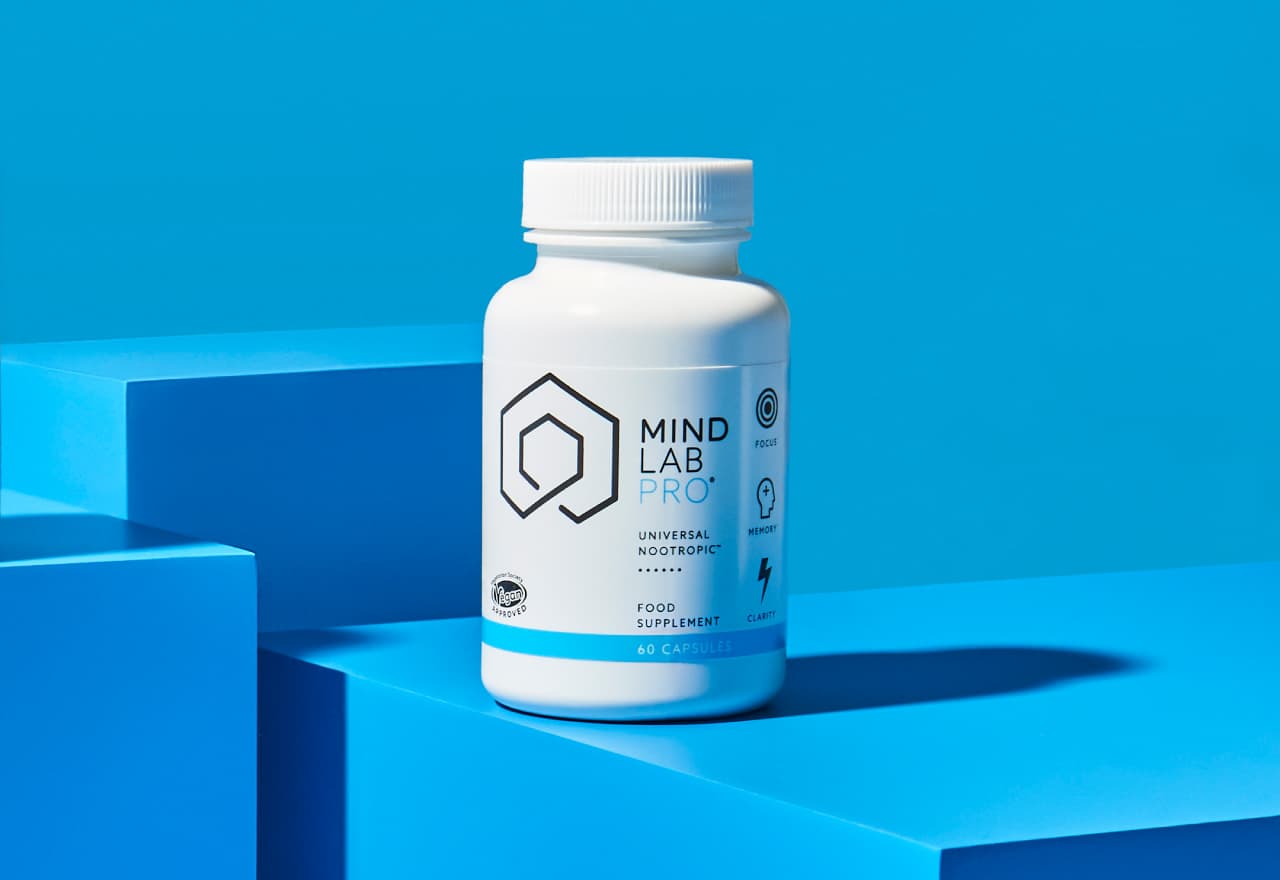
Regarded as the premier choice in the nootropic supplement sphere, Mind Lab Pro® (MLP®) supplies 11 scientifically supported nootropics. It includes several ingredients highlighted in this article for their ability to complement coffee: L-theanine (100mg dose), Rhodiola, Bacopa and B-Vitamins.
Each of its nootropics contributes to a wide array of mental performance benefits -- especially when combined with coffee. The full MLP® formula:
- Citicoline, dosage 250mg
- Phosphatidylserine (PS), 100 mg
- Bacopa monnieri, 150 mg (full-spectrum extract with 24% bacosides and 9 bioactives)
- Organic Lion's Mane Mushroom, 500 mg (inclusive of fruit and mycelium with active hericenones and erinacines)
- Maritime Pine Bark Extract, 75 mg (95% proanthocyanidins)
- N-Acetyl L-Tyrosine, 175 mg
- L-Theanine, 100 mg (equivalent to the amount in 10 cups of green tea)
- Rhodiola rosea, 50 mg (3% rosavins, 1% salidrosides)
- NutriGenesis® B-Vitamins: Vitamin B6 (2.5 mg), Vitamin B9 (100 mcg), Vitamin B12 (7.5 mcg)
This nootropic formula includes benefits related to coffee stimulation, including support for:
- Stim-free cell energy, effectively complementing caffeine stimulation
- Attention, focus and concentration
- Memory: Long-range, short-range, learning
- Mood, helping to promote a bright, motivated and balanced outlook
- Better brain functions under stress and improved resistance to stress
Backed by Scientific Research:
Mind Lab Pro® is backed by clinical human trials. In these studies, it was shown to help enhance mental function in many ways, including focus, attention, and quick thinking plus auditory, visual, immediate, and delayed recall memory.(11,12).
Mind Lab Pro® is also a premium quality stack, offered in 100% vegan capsules. It's GMO-Free, soy-free, gluten-free, and free from synthetic additives. It's even Vegetarian Society Vegan Approved.
MLP® is Ideal for Coffee Drinkers.
For those who enjoy ground coffee or caffeine in general, Mind Lab Pro® is an excellent supplement to enhance stimulation effects and aid stimulation recovery and while supporting brain health.
Get the Best Deal on Mind Lab Pro® Now
Additional Top Nootropics for Coffee Drinkers
Mind Lab Pro® is the top overall supplement for taking with coffee. Some of the best additional supplements for complementing or replacing coffee entirely include:
Caffeine 2: Best caffeine pill (plus nootropics) to replace coffee. It's "smart stimulation": low-dose (50 mg) caffeine plus nootropic ingredients L-Theanine, L-Tyrosine and NutriGenesis® B-Complex vitamins. The result is cleaner, calmer vitality. Coffee side effects, jitters and crashes are replaced with smoother energy and faster recovery -- all in a convenient vegan capsule design. - More on Caffeine 2 -
Performance Lab® Mind: Supplies brain-energizing nootropics Citicoline, L-Tyrosine, Maritime Pine Bark Extract and phosphatidylserine (PS). A great coffee complement (or substitute) for students and hard-working professionals. Its benefits improve cognitive performance with an emphasis on fighting mental fatigue, sharpening mental clarity and increasing productivity. Plus extra brain supplement support for stress, brain fog and other negative symptoms of mental burnout. - More on Performance Lab® Mind -
Performance Lab® Energy: The best caffeine-free energy pill. It can enhance energy alone or in conjunction with caffeine stimulation. This stack works on a cellular level by boosting, multiplying and protecting mitochondria "power plants" that generate life energy. Its nootropic ingredients include: CoQ10 (Coenzyme Q10), PQQ (Pyrroloquinoline Quinone), Acetyl-L-Carnitine (ALCAR), Black Pepper Extract and R-Lipoic Acid. - More On Performance Lab® Energy -
MCT Energy Oil: Instead of adding creamer to your coffee, try adding MCT oil. This natural nootropic delivers purified C8+C10 MCTs (medium-chain triglycerides) from 100% organic non-GMO coconuts. MCT oil is "performance fuel" that energizes the brain and boosts overall performance. It's neutral-tasting, but adds a rich, silky texture to coffee -- perfect for making your own nootropic coffee at home. - More on MCT Energy Oil -
Pre Lab Pro®: Want caffeine, nootropics and sport nutrients to boost physical performance? This berry-flavored pre-workout drink mix is for you. A "smart pre-workout," it promotes clean, smooth workout energy and focus for better strength, endurance, speed and intensity. Ingredients: Red Beetroot, Setria® Performance Blend, Caffeine, L-Theanine, L-Tyrosine, NutriGenesis® vitamins and minerals. - More on Pre Lab Pro® -
Which is Better for Cognition: Nootropics or Coffee?
Ultimately, nootropics can provide a wider assortment of human cognition benefits with less side effects than coffee.
While coffee is an effective, energizing beverage packed with plenty of bioactive compounds for a quick cognitive fix, it's not always sustainable.
If you're looking for crash-free cognitive stimulation and performance enhancement, nootropics are the way to go. Just make sure you're taking clean, natural nootropic ingredients, like those found in the supplements we've discussed in this article.
If you're aiming to enhance your coffee stimulation, nootropics are still the way to go. They can reinforce caffeine energy and alertness benefits while promoting dozens of additional cognitive function benefits.
The nootropic nutrients and formulas discussed in this article can all be used as a starting point towards sharper, healthier and cleaner stimulation to power you through your day.
**Keep in mind that coffee, nootropics and nootropic coffees have the potential to interact with other medications and supplements. It is always best to ask your doctor before taking a nootropic alongside coffee, other supplements and medications.
Scientific References
- Loftfield E, Freedman ND, Dodd KW, Vogtmann E, Xiao Q, Sinha R, Graubard BI. Coffee Drinking Is Widespread in the United States, but Usual Intake Varies by Key Demographic and Lifestyle Factors. J Nutr. 2016 Sep;146(9):1762-8. doi: 10.3945/jn.116.233940. Epub 2016 Aug 3. PMID: 27489008; PMCID: PMC4997286.
- Nehlig A. Is caffeine a cognitive enhancer? J Alzheimers Dis. 2010;20 Suppl 1:S85-94. doi: 10.3233/JAD-2010-091315. PMID: 20182035.
- Guest, N.S., VanDusseldorp, T.A., Nelson, M.T. et al. International society of sports nutrition position stand: caffeine and exercise performance. J Int Soc Sports Nutr 18, 1 (2021). https://doi.org/10.1186/s12970-020-00383-4
- Dodd, F. L. et al. "A Double-Blind, Placebo-Controlled Study Evaluating the Effects of Caffeine and L-Theanine Both Alone and in Combination on Cerebral Blood Flow, Cognition and Mood." Psychopharmacology 232.14 (2015): 2563-2576. PMC. Web. 1 Oct. 2016.
- Wacker MS. Alpha brainwave training and perception of time passing: preliminary findings. Biofeedback Self Regul. 1996 Dec;21(4):303-9. doi: 10.1007/BF02214430. PMID: 9031709.
- Fernstrom JD, Fernstrom MH. Tyrosine, phenylalanine, and catecholamine synthesis and function in the brain. J Nutr. 2007 Jun;137(6 Suppl 1):1539S-1547S; discussion 1548S. doi: 10.1093/jn/137.6.1539S. PMID: 17513421.
- Silveri MM et al. Citicoline enhances frontal lobe bioenergetics as measured by phosphorus magnetic resonance spectroscopy. NMR Biomed. 2008; 21(10):1066-75.
- Panossian A, Wikman G. Evidence-based efficacy of adaptogens in fatigue, and molecular mechanisms related to their stress-protective activity. Curr Clin Pharmacol. 2009 Sep;4(3):198-219. doi: 10.2174/157488409789375311. Epub 2009 Sep 1. PMID: 19500070.
- Ulvik A, Vollset SE, Hoff G, Ueland PM. Coffee consumption and circulating B-vitamins in healthy middle-aged men and women. Clin Chem. 2008 Sep;54(9):1489-96. doi: 10.1373/clinchem.2008.103465. Epub 2008 Jul 7. PMID: 18606630.
- Wang Y, Liu Z, Han Y, Xu J, Huang W, Li Z. Medium Chain Triglycerides enhances exercise endurance through the increased mitochondrial biogenesis and metabolism. PLoS One. 2018 Feb 8;13(2):e0191182. doi: 10.1371/journal.pone.0191182. PMID: 29420554; PMCID: PMC5805166.
- Utley A, Gonzalez Y, Imboden CA. The Efficacy of A Nootropic Supplement on Information Processing in Adults: A Double Blind, Placebo Controlled Study. Biomed J Sci & Tech Res 49(1)-2023. BJSTR. MS.ID.007746
- Abbott-Imboden C., Gonzalez Y., Utley A. (2023). Efficacy of the nootropic supplement Mind Lab Pro on memory in adults: Double blind, placebo-controlled study. Human Psychopharmacology: Clinical and Experimental, e2872.

